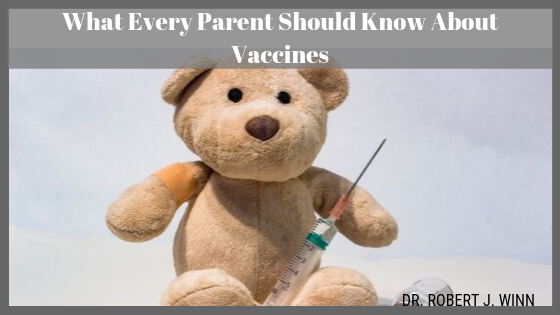Doctors typically recommend a series of vaccines for children that begin at birth. These vaccines are meant to help the child become immune to several potentially deadly childhood diseases. Vaccines are created from dead, or weakened versions of a disease or part of the germ that causes the disease. Since the disease is in a dead or weakened form, it’s safe for the person getting the vaccine. Vaccines help the body’s immune system develop antibodies that can fight off the disease if and when the individual is exposed to the actual disease.
In recent years, there has been a great deal of misinformation concerning the safety of vaccination. However, many vaccinations given today have been used for over 50 years, and no convincing evidence of harm has been produced. Even though a reaction can occur with any vaccination, it is no different from any other medication given. Even common medicines like fever reducers can cause a reaction. In the case of vaccinations, severe reactions are rare, and the benefits far outweigh the risks.
According to the American Academy of Pediatrics, “vaccinations have reduced the number of infections from vaccine-preventable diseases by more than 90%.” Vaccines have significantly limited or even eradicated some childhood diseases that used to threaten the lives of children regularly.
Why Immunize?
Childhood vaccinations are an essential component of ensuring your child’s overall health. Common childhood illnesses of the past like Polio, Measles, Pertussis, and Diphtheria are preventable now. Out of all of the decisions you make as a parent to ensure your child’s wellbeing, the decision to vaccinate is one of the most significant. Vaccinations can significantly reduce your child’s risk of developing a disease which could, at the very least, severely compromise their quality of life.
While most parents do decide to vaccinate their children, some children may be unable to receive vaccinations. Newborns and those with chronic illnesses are unable to receive certain vaccinations due to an undeveloped or compromised immune system. These children must rely on herd immunity, assuming that those around them have been vaccinated. According to the Centers for Disease Control & Prevention(CDC), herd immunity is created when “a sufficient proportion of a population is immune to an infectious disease (through vaccination and/or prior illness) to make its spread from person to person unlikely.” Any child medically capable of receiving vaccinations should be vaccinated to ensure not only their health but the health of those around them.
The American Academy of Pediatrics notes that “if the rates of immunizations decline even a little, it can cause a comeback of the infectious diseases that have nearly been wiped out in the United States.” As a result, most states in the U.S. require that children have a complete immunization record to start school and with good reason.
Having your child vaccinated can help you save money in the long run. Sick children result in time off work and medical bills. Not to mention some of the diseases that can be prevented by vaccines can result in long-term disability for the child and an even greater strain on the family’s finances. Most vaccines are covered by insurance. For those who qualify as low-income, there’s a federally funded program called The Vaccines for Children program which provides vaccinations at no cost.
If you are uncertain about which vaccines your child may need, consult your family physician or pediatrician. They can help you determine a vaccination schedule for your child. Vaccination is a vital factor in your child’s long-term wellbeing just as much as a healthy diet and exercise. You do your best to protect your child from all kinds of things; vaccine-preventable diseases need to be one of them.


